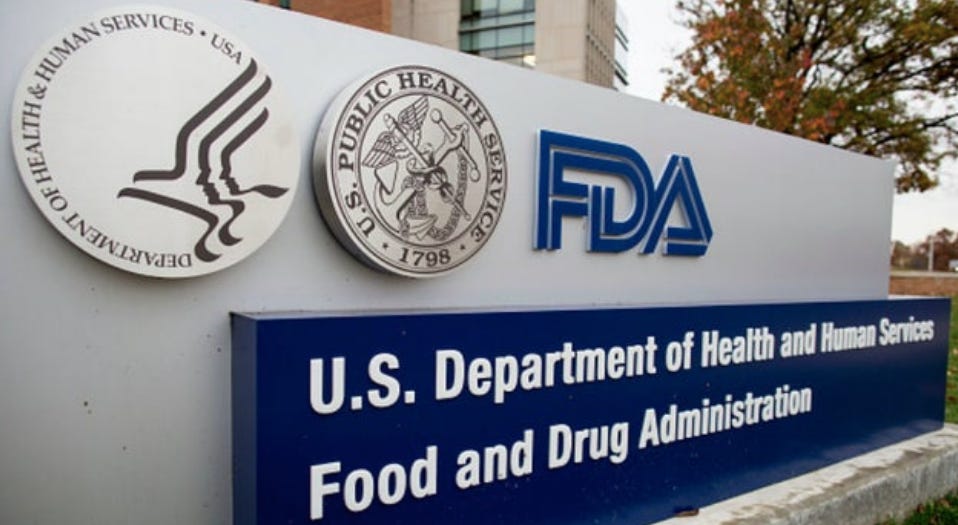Hi,
Welcome to BIG, a newsletter about the politics of monopoly. If you’d like to sign up, you can do so here. Or just read on…
This one will be short piece on how the coronavirus is causing policymakers to wrestle with the problem of monopolization. But first, a follow-up on my piece on the monopolization of the podcasting industry. The Ringer has already announced podcasts exclusive to Spotify, which is what you’d expect if it’s a monopoly play.
And now…

Medical Monopolies and China
I write a lot about China, everything from how China is spurring Trump to embrace industrial policy to how China organizes IP rights to take advantage of American tech. But mostly I’m obsessed with how we can’t make key products in the U.S. anymore and are dependent on Chinese supply. What we can’t make includes everything from bibles to prom dresses to more specialized products. I wrote last July:
The list of products and commodities companies say they can no longer make in America is long. Nylon products, optical scanners, consumer robotics, electronics, all types of clothing, specialty chemicals…
So we’re dependent on China. The coronavirus introduces a special twist on this dependency problem, because we may need a lot of supply for certain kinds of product all at once. And as Dave Dayen in the Prospect noted, most of our medicine and medical equipment is made in… China.
China produces and exports a large amount of pharmaceuticals to the U.S., including 97 percent of all antibiotics and 80 percent of the active ingredients used to make drugs here. Penicillin, ibuprofen, and aspirin largely come from China. Last month, the medical supply firm Cardinal Health recalled 2.9 million surgical gowns “cross contaminated” at a plant in China; the blood pressure drug valsartan also saw shortages recently, thanks to tainted active ingredients at one Chinese plant. The combination of supply chain disruptions and increased demand at hospitals if coronavirus spreads to the U.S. could prove devastating.
In a dark irony, most of the world’s face masks—now ubiquitous in China as a precaution—are made in China and Taiwan, and even for those made elsewhere, some component parts are Chinese-sourced. Shortages have led China to declare the masks a “strategic resource,” reserving them for medical workers. U.S. hospitals are “critically low” on respiratory masks, according to medical-supply middlemen. Lack of protective gear could increase vulnerability to the virus, and the one place on earth suffering from production shutdowns is the one place where most of the protective gear originates.
Former Trump Food and Drug Administration Commissioner Scott Gottlieb testified before the Senate yesterday on these problems. His testimony is a sobering look at the likelihood of a pandemic. As someone who thinks about policy, I noticed what he said about how to address supply chain choke points for chemical inputs for drugs or components for medical devices. On a very basic level, he argues, we need to know where these chokepoints are. Here’s what he said:
This is where Congress can help, by giving the FDA authority to look not only at the supply of finished products but to also identify circumstances where key components may have only a single source across an entire category of products.
In other words, Gottlieb, a conservative who worked under both Bush and Trump, wants the FDA to have the authority to uncover hidden monopolies. Now, the Federal Trade Commission already has this research authority, it just doesn’t use it very often. And the United States Trade Representative has information on our dependencies on China, because when they threatened tariffs large numbers of companies came to them during a notice and comment period whining about how such dependencies would hurt their business. So we have some information about the scale of the problem. Just not enough.
The FDA should have this authority, but even in its absence, the FDA could start by asking USTR to give them information about supply choke points, or it could suggest to the FTC that they initiate a study across the medical supply and pharmaceutical industries for points of monopolization. One way to get this information is more basic; members of Congress could just start asking corporations directly and my guess is they’d respond voluntarily.
Regardless, this coronavirus situation shows a very basic point about our concentration crisis . The strongest reason to address monopolies isn’t because monopolies are unjust, but because they are dangerous. And we may be about to find out just how dangerous they are.
Thanks for reading. And if you liked this essay, you can sign up here for more issues of BIG, a newsletter on how to restore fair commerce, innovation and democracy. If you want to really understand the secret history of monopoly power, read my book, Goliath: The 100-Year War Between Monopoly Power and Democracy.
cheers,
Matt Stoller
P.S. If you work in an industry and see up close dependencies on China, send me an email about it.


Except that the FDA creates a new monopoly whenever it approves a new drug, device and even tobacco products.
FDA's 2016 cigarette protecting Deeming Rule (that Judge Paul Grimm ordered FDA to begin enforcing on May 12, 2020) protects Big Tobacco's oligopoly of three large cigarette manufacturers (by banning the sale of >99.9% of much less harmful nicotine vapor products now on the US market), which is why all large tobacco companies lobbied FDA to impose the rule.
Even worse, to replace the current free market (and thousands of small manufacturers) for nicotine vapor products, FDA's Deeming Rule will create a new multi billion dollar monopoly or oligopoly this will almost certainly be controlled by the largest tobacco companies.
Dear Matt, I was just introduced to your column. Important, clear, penetrating. Thank you.